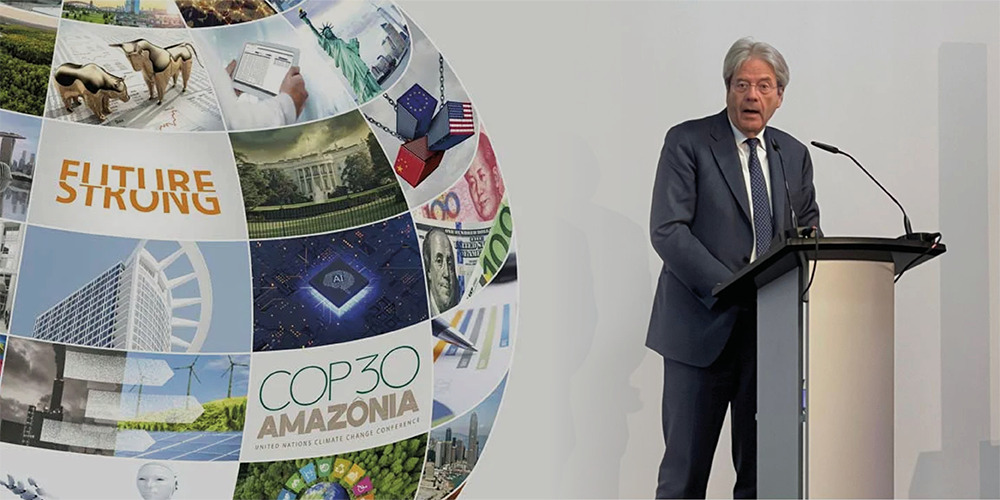The European Union promote more ‘homogeneous’ supranational debt issuance to capitalise on international demand for euro-denominated ‘safe assets’. That was the call by Paolo Gentiloni, former Italian prime minister and European Commissioner for economy, at a capital markets conference in Frankfurt organised by DZ BANK, OMFIF and KfW.
Giving the opening keynote speech, Gentiloni said the first 100 days of President Donald Trump’s second administration had been a ‘very loud wake-up call’ for Europe. He underlined a ‘profound crisis of trust’ in relations between the US and Europe, with Trump’s erratic actions on the economy and tariffs undermining international confidence in the dollar.
‘Growth through crisis’
Speaking on 6 May shortly after designated new German Chancellor Friedrich Merz failed to win a majority in the first chancellor vote in the Bundestag, Gentiloni said Europe was accustomed to ‘growth through crisis’. He uttered confidence that Merz – assuming he is elected in the next stage of the parliamentary elective process – would eventually decide appropriate policies with other European partners to drive the continent forward.
Hours after Gentiloni’s speech, in the second round of voting in Berlin, Merz received 325 votes of support from Bundestag deputies, nine more than the required majority of 316 – and was subsequently sworn in as Germany’s 10th postwar chancellor.
On supranational borrowings, Gentiloni said the new German government was unlikely to agree a straightforward extension of the Next Generation EU fund beyond the designated 2026 cut-off date. But he held out the hope that the NGEU and other European borrowing entities could be redefined to fund combined defence spending to meet security threats caused by US disengagement from Europe and Russia’s international bellicosity.
At the root of this issue lies the wish by some European policy-makers to streamline supranational borrowing with a more harmonised approach both by the European Commission and the European Stability Mechanism and by national issuers.
In areas like the planned German fiscal package on defence spending, Gentiloni said Europe would make a mistake if it concentrated extra security spending on purely national capabilities. He outlined sectors and research areas where Europe could both expand its international capabilities and add to productivity improvements. Examples included cybersecurity measures, submarine warfare defence and drone warfare.
Europe should take steps to build euro deposits held by international central banks. He suggested that the European Central Bank could step up its promotional efforts on the single currency. One idea would be for the ECB board member responsible for international affairs to work closely with a designated member of the European Commission to build up the euro’s international status.
Dealing with Trump
Gentiloni was Italian foreign minister in 2014-16 before becoming prime minister after Matteo Renzi in 2016-18 and then a member of the first Commission under Ursula von der Leyen in 2019-24. He had particular dealings with Trump when he visited Europe for the Italian G7 presidency in 2017.
Asked about the psychology of handling the US president, Gentiloni warned against considering Trump in the same fashion as during his first presidency. Trump had moved beyond driving a ‘transactional’ approach in his first term to adopting a ‘revolutionary’ stance in his second four years. In his speech, Gentiloni suggested his role model was Franklin D. Roosevelt, the legendary post-Depression and second world war president – but there were other alternatives.
David Marsh is Chairman of OMFIF.
Join OMFIF on 24 June for the launch of Global Public Investor 2025.
Interested in this topic? Subscribe to OMFIF’s newsletter for more.

